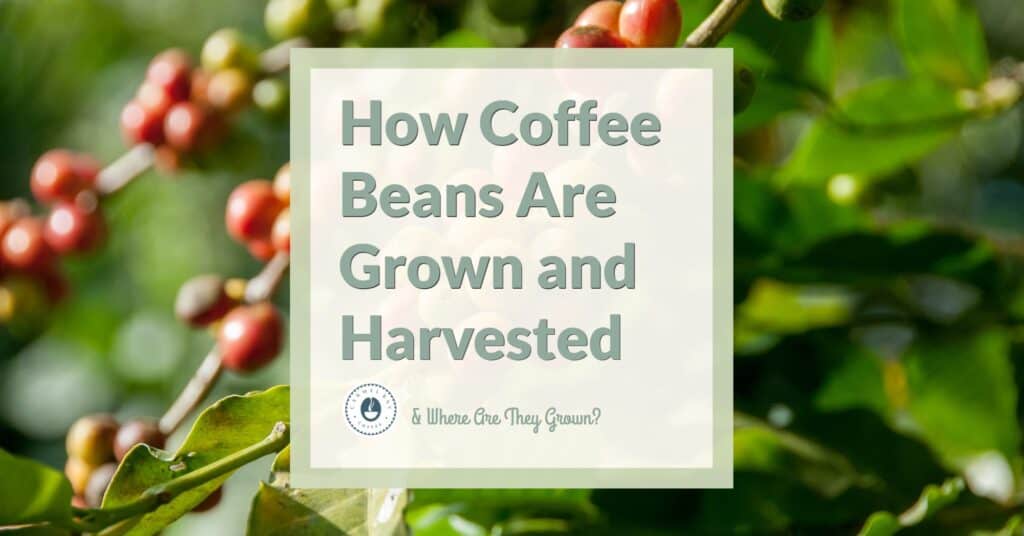Coffee is among the most popular pantry items.
There’s always a little ground coffee stashed away somewhere in the back, maybe behind that 10-year-old can of condensed chicken soup.
Duration is the name of the game. But stockpiling coffee will eventually play against you. Coffee isn’t like a decade-old can of soup. Coffee is still a produce item, and like all other produce items, it inevitably spoils.
As a rule of thumb, coffee is always freshest two weeks after the roast date. For pre-grounded coffee, that countdown clock can be as early as a week. Ground coffee oxidizes quicker than whole beans due to their more prolonged exposure to oxygen.
How Long Can You Actually Keep Ground Coffee?
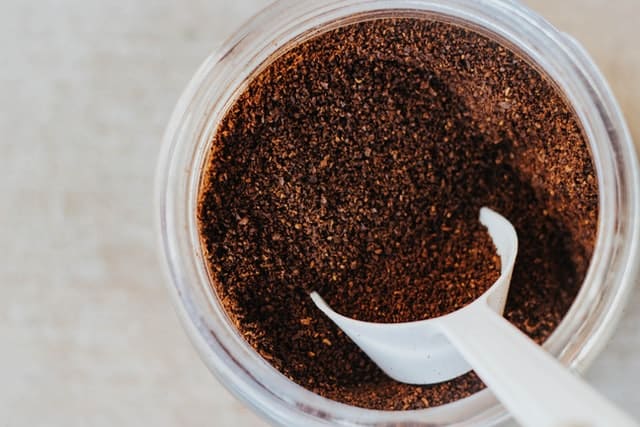
Since coffee doesn’t spoil the same way other produce items do, you can drink coffee years after it’s been roasted.
Be warned though, it isn’t going to be a tasty beverage.
When people talk about “spoiled coffee,” they’re referring to the depletion of the oils and acids that give coffee its personality.
Two weeks isn’t a long time, but with proper storage techniques (which we’ll get into later), you can prolong its life by three to five months! (9 months for whole beans). Although freezing coffee grounds is an unpopular method, it can prolong its life up to a year!
Pre-ground coffee is harder to keep fresh than whole beans.
Beans have a naturally protective shell that helps shield the excellent stuff inside from invasive elements. You can maximize the shelf-life by grinding beans per brew.
There aren’t many risks brewing older coffee grounds, except for mycotoxins.
Mycotoxins are created by tiny fungi that grow on all sorts of grains and crops. The spores stow away on plants and accumulate mycotoxins over time. If coffee grounds are infected, they will accumulate a higher concentration of mycotoxins as time passes.
We have an entire article dedicated to moldy coffee if you’d like to read further about it. Just click the image below to read up on it.
Don’t let this scare you away from coffee! You intake mycotoxins just by stepping outside and breathing the air, and they are naturally all around us. In low amounts, this toxin is easily filtered by the liver but can be harmful in large deposits.
Some mycotoxins are good for you and have been utilized by pharmaceutical companies. Penicillin, for example, is a mycotoxin used in medicine.
Some coffee might stay fresh longer than others. Although there are hundreds of different kinds of coffee beans, Arabica and Robusta beans are favored for commercial use.
Although Robusta coffee beans contain 2x the amount of caffeine, they lack the acidity that gives Arabica its premium quality. One could argue that due to the lower PH balance, Robusta coffee degrades quicker than Arabica since there is less acidity to be retained.
Although instant coffee is typically using Robusta beans, it can stay good for as long as 20 years! My uncle used to call instant coffee “Mad Max coffee.”
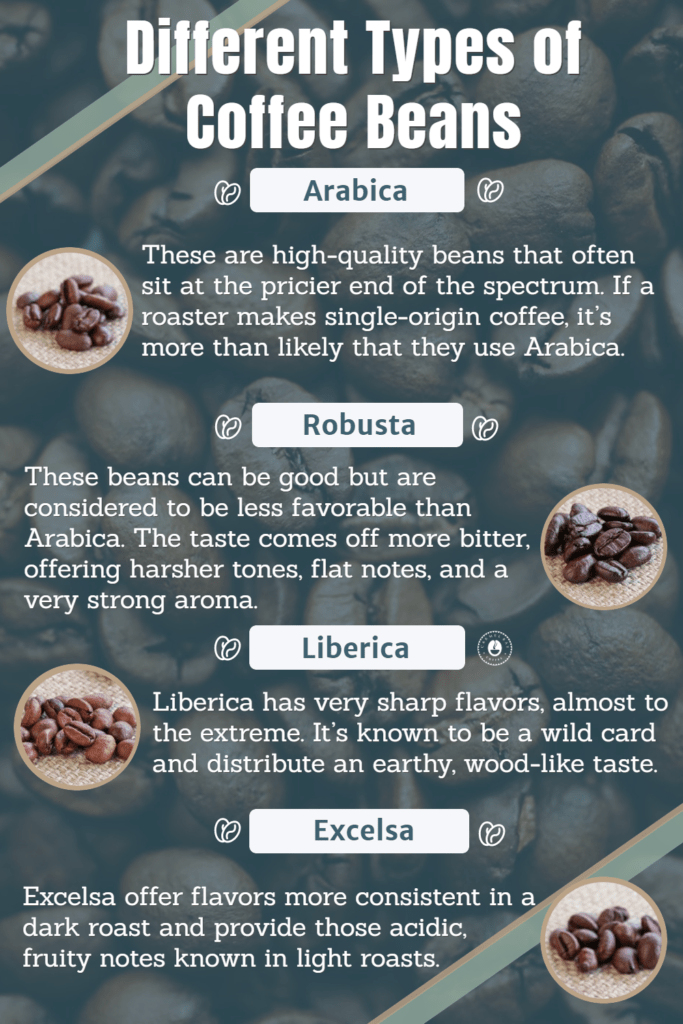
Another tip is to avoid artificially flavored coffee. Some roasters will use flavoring to mask their stale, less favorable beans so they can still make a buck on the expired stock.
Make sure to check out our article all about flavoring coffee, This Is How Coffee Beans Are Flavored. It’s not all bad!
Roasting profiles play a potential role. Dark roasts endure much longer durations in the oven. This sucks moisture from the beans along with their oils and small amounts of caffeine. Since dark roasts already lose most of their origin flavor, they may become bitter much quicker than light roasts.
Best Ways to Keep Coffee Fresh
Coffee is only as good as the container your storing it in!
For starters, try not to buy too much coffee all at once. The only thing worse than running out of coffee is letting the coffee you have go stale. Buy only what you think you can drink within two weeks.
It can be best to simply leave coffee in the bag it came in. Most coffee bags have a reflective lining that maintains a consistent temperature. They also come with their own one-way valve. It’s that weird plastic button at the top of most coffee bags.
It allows beans to breathe by expelling gases out of the bag but preventing oxygen from coming back through from the outside, hence the name “one-way.” Just as long as you can still seal the bag, you should be good to go.
I tend to open bags like a caveman, completely destroying the built-in seal.
If you decided to switch containers, your best bet is glass. Preferably a non-transparent vessel since coffee reacts poorly to light, artificial and natural. Aluminum keeps coffee grounds well insulated but often provides it with a weird metallic after taste.
Whichever vessel you choose, it must be airtight. Coffee, especially ground coffee, oxidizes quickly when exposed to the air.
Oxidation is the chemical alteration of a product due to oxygen exposure. It’s the same process that causes metals to rust. When coffee oxidizes, it becomes stale and lifeless.
Coffee is a panty item for a reason. Sunlight (and some artificial light) causes beans to stale quickly. Direct sunlight triggers humidity in the jar, which can drive mold growth.
Always store coffee in dark, cool areas with a consistent temperature. Coffee reacts poorly to constantly fluctuating environments.
Besides sunlight, moisture is the biggest coffee killer. Besides provoking mold growth, moisture spoils the entire batch almost instantly. Drastic changes in the environment cause condensation.
Something that I can’t stress enough about is…do not store coffee in the refrigerator.
A few rumors are floating around the internet suggesting this method. I’m here to tell you not to follow the herd off the cliff on this one.
Refrigerators aren’t quite cold enough to preserve for extended periods. The constant temperature fluctuation causes an unstable environment for coffee grounds.
Additionally, coffee is a natural and very effective deodorizer. Its absorbent properties suck up all the other odors and scents inside the fridge.
Mmm, onion-flavored coffee…
If you still plan to chill coffee grounds, put them in the freezer instead. It’s a more consistent environment with no foreign smells or odors. Since coffee has no moisture, it won’t freeze, but condensation can form when taking it out of the freezer, so do it quickly.
If freshness is essential (as it should be), avoid flavored coffees. Lower quality or expired coffee is often used for flavored coffee, hoping the flavors mask the bitter beans.
Or maybe make the switch to beans? Whole beans last much longer than pre-grounded coffee. Grinding crisp beans before every brew ensures ultimate freshness in your cup.
If you’re traveling with brewed coffee, the same rules apply. Use a well-insulated thermos to ensure a stable temperature with a top that seals completely.
How to Tell If Coffee Is Bad
I mentioned in the beginning that coffee doesn’t really spoil or go rancid like other produce items. When it does spoil, it can be almost impossible to tell visually.
Spoiled coffee simply refers to coffee that has lost its flavor, aroma, and acidity. Aside from its flavor profile, stale coffee loses its complexion, turning into a very light brown.
When whole beans go sour, they not only lose their color but their oily texture too.

You won’t get sick drinking old coffee. In fact, after all of the flavors have evaporated, the coffee is still loaded with caffeine!
Caffeine is the “last man standing” when talking about chemical compounds in coffee (which I’m sure you and your friends talk about all the time).
Unless exposed to moisture, coffee grounds (and whole beans) rarely mold. But coffee has been known to retain trace amounts of mold from when coffee was a mere infant shrub (mycotoxins). Especially Arabica coffee, which is exceptionally prone to mold growth and disease.
Unfortunately, any noticeable mold means the entire bag is compromised. You can scoop out the white moldy speck, but the spores have already been spread to the rest of the batch.
Checking Dates on Packaged Coffee (How to Purchase Coffee)
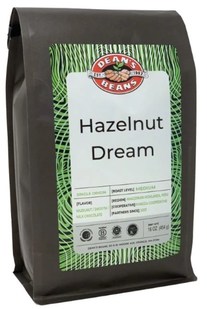
This title might sound slightly offensive.
I mean, of course, you know how to buy coffee, but are you sure you know what to look for?
Some manufactures try to deceive customers by displaying a faulty “best-by” date. It’s misleading because you shouldn’t buy coffee based on the best-by date, preferably its roasting date.
Roasters typically let roasted beans rest for 24 hours before packaging. After packaging, they usually aren’t shipped for another four days.
Remember, coffee is freshest for two weeks after roasting. Of course, you can slap on a 3-month expiration date to a bag of coffee, but it will have lost most of its origin profiles by then. Roast dates can be purposefully challenging to locate on the bag.
If coffee is important to you, pay attention to where the coffee is sourced. If the package doesn’t list too much information about the growers and roasters, that can be an issue. Repudiable coffee producers establish clear networks of communication and information to clients. If the information isn’t on the bag, the answers are usually a google search away.
If possible, find out if your favorite roaster provides a “roast to order” service. They will roast a special order just for you, which you can pick up directly from them.
Quality roasters will always provide delicate facts such as which region in which country the coffee was harvested. Some will even list information about the specific farm the coffee was grown. Some known as “fair coffee” confirms the coffee was grown and harvested in completely natural and ethical ways.
Getting to know your coffee just got a lot personal.
When you’re buying a carton of eggs, usually you check them for cracks first. Do the same thing for coffee. Please inspect the packaging at the store for any breaches or tears that could have exposed it to the air.
Coffee Masters also has a good article about this harvesting process.
How Long Do Coffee Pods Stay Fresh?
I’m not a big fan of the Keurig, but I admit they are convenient when you’re in a pinch.
Coffee pods typically have a “best by” date of a few months but can last much longer than that. Since coffee pods are individually sealed, they do not oxidize.
The packaging is not typically clear, so light cannot reach them, although warmth can still cause them to spoil. They commonly have a reflective lining inside that maintains coolness and repels heat.
The pods often last much longer than the posted expiration date. They are known to stay good for eight months to a year.
When it comes to storing coffee pods, the same rules apply to coffee grounds. Please keep them in cool, dry, and dark locations.
Coffee pods are easier to store in the freezer. They come pre-sealed, which assures no moisture unless you allow condensation to infiltrate the pod.
Coffee pods last longer than regular coffee grounds when exposed to the air. Pods are filtered with nitrogen when sealed, which causes oxidation to occur much slower. But they aren’t invulnerable, and oxidation will catch up eventually.
Some coffee pods come in a variety of different flavors. Depending on the ingredients used to make those flavors, they can cause the pod to expire much quicker. Just like how brewed coffee spoils faster when made with dairy products.
If you ever feel any moisture inside a coffee pod, throw it out. It’s most likely already been taken over by mold.
How to Prolong the Shelf-Life of Coffee
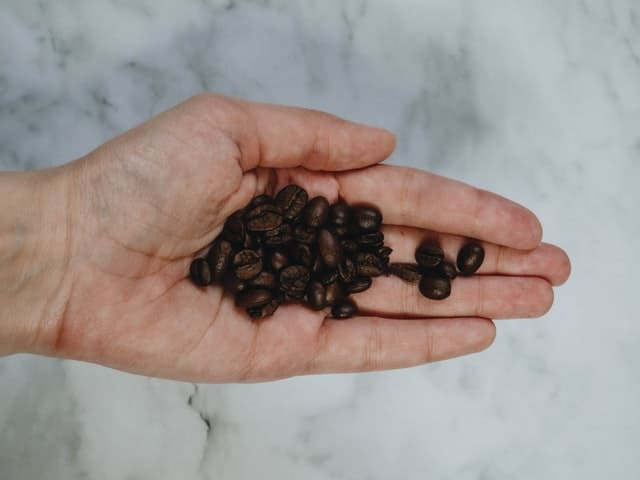
It’s not going to last forever, but clever techniques can at least extend its flavorful life.
Choosing a light roast coffee will last much longer.
Light roasts have significantly more acidic properties and retain the majority of their origin flavors. The brighter, more vibrant flavors take much longer to evaporate than those of dark roasts. Dark roast already has darker, more bitter notes.
Remember that coffee is just as sensitive as any other produce item. Yes, you can extend its life, but never by too much. Always buy in moderation and in amounts that you know you can finish two weeks after its roasting date.





